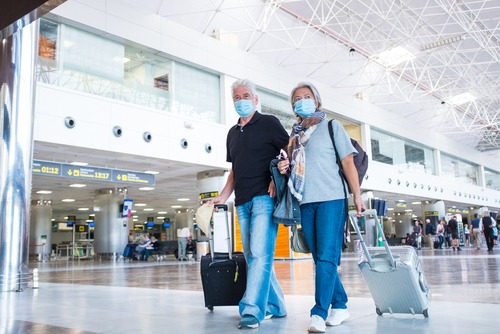
Airline industry trade group Airlines for America (A4A) has joined a coalition of other aviation-related groups in applauding the White House’s mask-wearing mandates but condemning the idea of pre-flight COVID testing.
The coalition, made up of A4A, Airport Council International – North America, the American Association of Airport Executives, and others, said it commended the White House Covid-19 Recovery Team for President Joe Biden’s recent executive order requiring mask-wearing on flights and in pre-flight areas.
“To that end, we strongly support many aspects of the Executive Order, such as the Federal mask mandate for interstate travel and pre-departure testing for international arriving passengers,” the Jan. 29 letter said.
But the group took issue with the Centers for Disease Control and Prevention (CDC) considering adding pre-departure testing for domestic air travel.
Such testing is unwarranted and unnecessary, the group said.
“In November, a Harvard Aviation Public Health Initiative study found that air travel is as safe as — or substantially safer than — other routine activities, such as eating out and grocery shopping,” the letter said. “Similarly, US TRANSCOM3 conducted 300 tests over six months with mannequins to reproduce breathing and coughing to determine how particles moved within the cabin when a mask was on or off. The study concluded that when masks are worn, there is a 0.003 percent chance that particles exhaled by a passenger can enter the breathing space of passengers sitting next to them. Therefore, it’s not surprising that data published by the International Air Transport Association (IATA) shows that, of the 1.2 billion airline passengers who traveled since the beginning of 2020, only 44 cases of in-flight COVID-19 transmission have been reported.”
The group also said it would primarily impact low-income Americans who may not be able to afford testing and create a need to increase testing by as much as 42 percent across the country.
The group asked that the administration partner with them in finding better ways to manage transmission instead of pre-boarding testing.